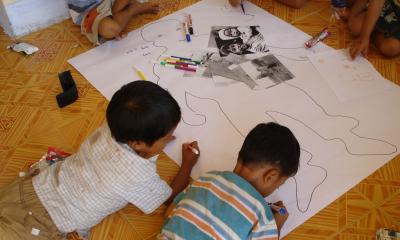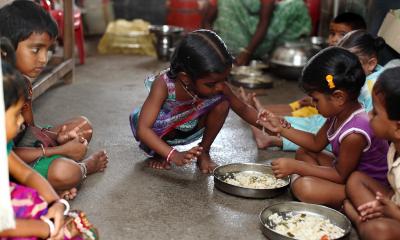Equal access to secure, decent jobs is critical to improving the lives of young people from disadvantaged backgrounds and enabling inclusive and sustainable economic growth, as set out in Sustainable Development Goal 8.
With an increasing number of Young Lives participants now part of the labour force, our longitudinal data allows us to see how early childhood poverty and widening inequalities impact their transition from school to work, across very different country contexts.
- Many of the young people in our study began their working lives during childhood, often unpaid and supporting the family farm or business.
- As they transition into adulthood, aspirations for social mobility and demand for decent work, through access to good quality, better paid and secure jobs, are much higher than for previous generations.
- Inequalities in foundational skills and learning appear very early in life, with those from the poorest households, in rural areas, and from minority status backgrounds consistently underperforming, which may perpetuate differences in employment in young adulthood.
- Young people from poor households and rural areas are less likely to secure decent work compared to those from wealthier and urban households.
- Gender is an important factor, with the transition to work happening earlier for young men than for young women across all our study countries, and significant gender gaps in both employment and income. Early marriage remains a key barrier to women’s labour force participation.
- The COVID-19 pandemic resulted in widespread job and income losses, widening inequalities and impacting young people from poor and rural backgrounds most, though with some country variation.
- Female workers and younger workers (19 year olds) were less likely to keep their jobs during the initial stages of the pandemic than male workers and older workers (26 year olds).
- Unequal recovery in employment rates during 2020 has increased the gender employment gap, with significantly slower job recovery among young women linked to the increasing burden of unpaid caring responsibilities.
- Increasing numbers of young people working in agriculture and a shift towards self-employmentduring 2020 suggests that the quality of jobs may be deteriorating as the pandemic unfolds, though the medium-term impacts remain to be seen.
- Digital skills are increasingly important for getting decent work, but a growing digital divide and increasing education inequalities are holding young people back, with those from the poorest households, from rural areas, and whose mother received little or no education, having least access to technology.
Equal access to secure, decent jobs is critical to improving the lives of young people from disadvantaged backgrounds and enabling inclusive and sustainable economic growth, as set out in Sustainable Development Goal 8.
With an increasing number of Young Lives participants now part of the labour force, our longitudinal data allows us to see how early childhood poverty and widening inequalities impact their transition from school to work, across very different country contexts.
- Many of the young people in our study began their working lives during childhood, often unpaid and supporting the family farm or business.
- As they transition into adulthood, aspirations for social mobility and demand for decent work, through access to good quality, better paid and secure jobs, are much higher than for previous generations.
- Inequalities in foundational skills and learning appear very early in life, with those from the poorest households, in rural areas, and from minority status backgrounds consistently underperforming, which may perpetuate differences in employment in young adulthood.
- Young people from poor households and rural areas are less likely to secure decent work compared to those from wealthier and urban households.
- Gender is an important factor, with the transition to work happening earlier for young men than for young women across all our study countries, and significant gender gaps in both employment and income. Early marriage remains a key barrier to women’s labour force participation.
- The COVID-19 pandemic resulted in widespread job and income losses, widening inequalities and impacting young people from poor and rural backgrounds most, though with some country variation.
- Female workers and younger workers (19 year olds) were less likely to keep their jobs during the initial stages of the pandemic than male workers and older workers (26 year olds).
- Unequal recovery in employment rates during 2020 has increased the gender employment gap, with significantly slower job recovery among young women linked to the increasing burden of unpaid caring responsibilities.
- Increasing numbers of young people working in agriculture and a shift towards self-employmentduring 2020 suggests that the quality of jobs may be deteriorating as the pandemic unfolds, though the medium-term impacts remain to be seen.
- Digital skills are increasingly important for getting decent work, but a growing digital divide and increasing education inequalities are holding young people back, with those from the poorest households, from rural areas, and whose mother received little or no education, having least access to technology.




